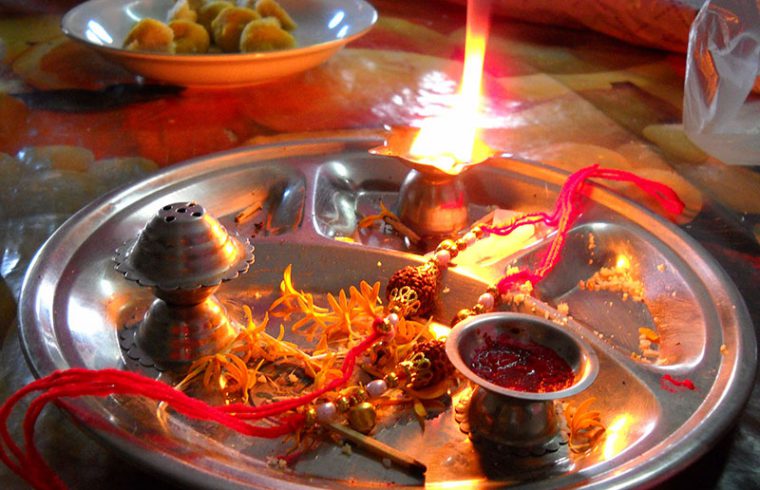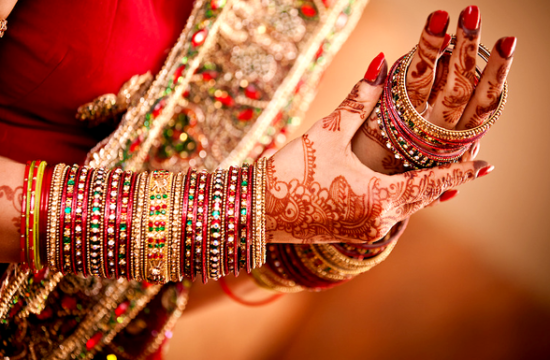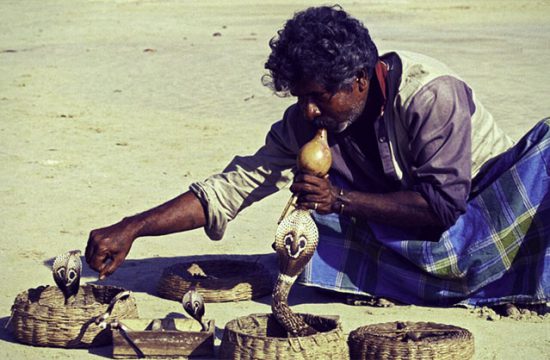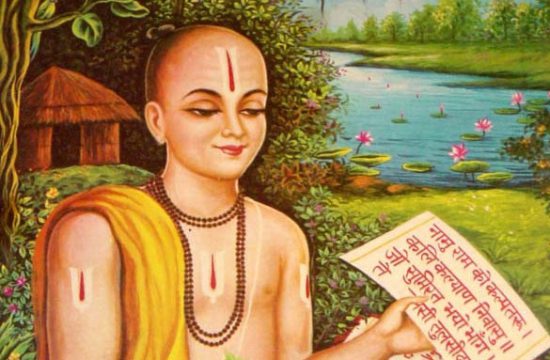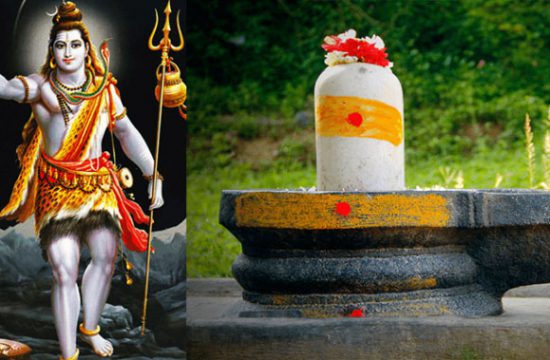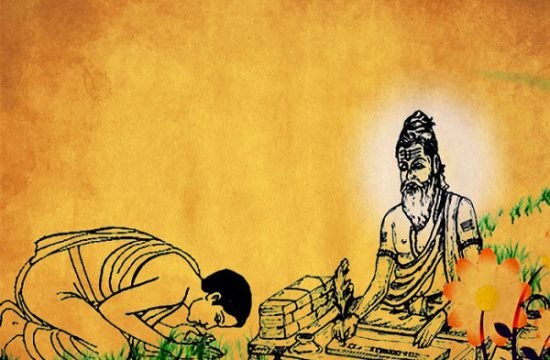Raksha Bandhan, or simply Rakhi is a Hindu religious and secular festival, celebrated in many parts of the Indian subcontinent, notably India and Nepal. Raksha bandhan means “bond of protection”. It is observed on the full moon day of the Hindu luni-solar calendar month of Shravana, which typically falls in Gregorian calendar month of August.
Raksha Bandhan as a religious festival focuses on performing the aarti and saying prayers prior to tying the rakhi. The prayers draw inspiration from the Hindu scriptures.
The festival celebrates the love and duty between brothers and sisters. It is also popularly used to celebrate any brother-sister type of relationship between men and women who may or may not be biologically related. On Raksha Bandhan, a sister ties a rakhi (sacred thread) on her brother’s wrist with a prayer for his prosperity and happiness. This symbolizes the sister’s love. The brother gives her a token gift and a promise to protect her.
Significance
Raksha Bandhan in Sanskrit literally means “the tie or knot of protection”. The word Raksha means protection, while Bandhan is the verb to tie. It is an ancient Hindu festival that ritually celebrates the love and duty between brothers and their sisters. The sister performs a rakhi ceremony, then prays to express her love and her wish for the well being of her brother; in return, the brother ritually pledges to protect and take care of his sister under all circumstances. It is one of the several occasions in which family ties are affirmed in India.
The festival is also an occasion to celebrate brother-sister like family ties between cousins or distant family members, sometimes between biologically unrelated men and women. To many, the festival transcends biological family, brings together men and women across religions, diverse ethnic groups and ritually emphasizes harmony and love. It is observed in the Hindu calendar month of Śrāvaṇa, and typically falls in August every year.
